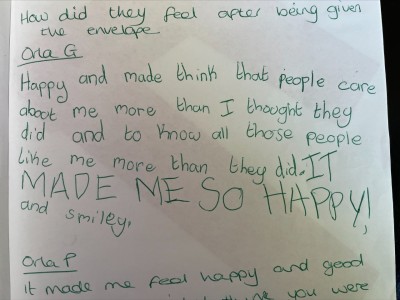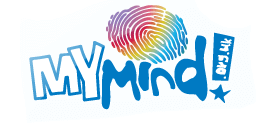On 17 May 2022, Cheshire and Wirral Partnership's Mental Health Support Teams hosted a Best Practice Event. The event was planned to share good practice across all Cheshire and Wirral schools and covered themes such as whole school approach, participation and student voice, and pathways to other services.
We know that children and young people’s emotional health and wellbeing plays a significant role in their cognitive development and learning, and it was encouraging to hear how schools across Cheshire and Wirral are applying whole school approach principles in the promotion of mental health and wellbeing for their children and young people, parents and staff.
On this page, you can read about some of the amazing work schools are undertaking, and it is a testament to the commitment our schools have made to providing nurturing, safe and supportive environments for their children and young people to thrive by accessing innovative approaches to support.
Whole school approach themes:
- Curriculum, teaching and learning
- Participation/student voice
- Measuring impact of strategies/interventions
- Personalised intevention
Description:
Staff noticed children struggling to sustain friendships following the school closures, lockdown and impact of the Covid-19 pandemic.
MHSTs deliver an intervention to children in key stage 2 who have been identified as having 'issues' around sustaining friendships. The MHST and safeguarding officer/assistant SENDCO work in partnership to support the children in this personalised intervention. Together, the practitioners and Darnhall staff set up a bespoke intervention to support identified pupils. It was recognised that many children experienced wellbeing difficulties and thought that this could be a positive opportunity to offer early support. These session took place weekly in the school setting.
Benefits:
Evidence of positive self talk and improved friendships. Teaching assistants or other staff can now continue group work with children that are experiencing social and emotional difficulties around friendship. The information provided, formed part of an important picture for next steps for staff working with the children going forward. The children benefitted from having a forum for discussion.
Presentation:
Whole school approach theme:
- Parent and carer engagement
Description:
The school's MHST practitioner has supported a range of parents to improve outcomes for their children. She has been excellent at engaging parents and giving strategies that link to our school ethos. MHST provide the school with a vast amount of advice, support, and guidance. They provide a quick and easy referral route for us to receive timely support for our families. A recognisable named practitioner who visits the school weekly encourages staff to utilise the service and access support to ensure that section 1 of the school's vision is upheld.
Benefits:
Staff were overwhelmed at how the young person was able to take what she has learnt in her therapy sessions and support her peers. Without MHST support this would not have been possible, and she may still have been struggling with her own anxieties. Her peer is now seeing an MHST practitioner and making great improvements. Improved outcomes for children and parents.
Presentation:
Whole school approach theme:
- Promoting respect and valuing diversity
Description:
A series of three assemblies delivered to all pupils to highlight 'unseen' disabilities. The main theme was that not all disabilities are obvious. Even though you can't see a disability doesn't mean that it isn't there. They covered:
- ADHD
- Autism
- Dyslexia
These assemblies were born out of a child's voice activity where some children referred to children with ADHD as 'naughty'. It was felt that it was important to ensure that children were not stigmatised but understood how being neurodiverse may make them feel. Classes then worked on the topic and talked about how they can support children in their class who may have these conditions.
Benefits:
Children talk openly about how to support their peers. Other children have talked about their siblings who have one of the three conditions discussed. Children with the conditions have shared how it makes them feel - not during the assembly but afterwards back in class. Many parents have referred to the assemblies and told us that children have talked about them at home.
Presentation:
Whole school approach themes:
- Pathways to other services
- Participation/student voice
- Mental health support for pupils
Description:
Parklands school provides a range of support for pupils with mental health difficulties or who have had difficult life experiences. The schools meets the needs of wide range of children and young people from diverse backgrounds with the school being within one of the 10% most deprived areas in the country. 60% of their children are entitled to pupil premium, and 60% of pupils have been known to social care at some point in their lives. Each day starts with a meet and greet and every child has access to toast in partnership with local shops and Greggs. A timetable is personalised to the school, and a range of multi sensory activities to start the day to encourage all children to attend. Throughout the school, there are allocated safe spaces, which have different names eg Rainbow Bay. There are also designated spaces for intervention, including de-escalation. There are visual prompts for emotional literacy such as worry monster, sliding scales, and feeling prompts, and fidget toys. Sensory circuits are used throughout the school environment, and there is a fish tank which is used as a calming tool. These approaches demonstrate using engagement with local community and applying for grants to help fund small but impactful improvements.
Benefits:
Pupils are more able to access learning, continuing to find a new solution to meet the needs of the child, and engaging with children early to meet their needs on a day to day basis so they are able to access learning and any further support, eg MHST, art therapy, Health Box, etc.

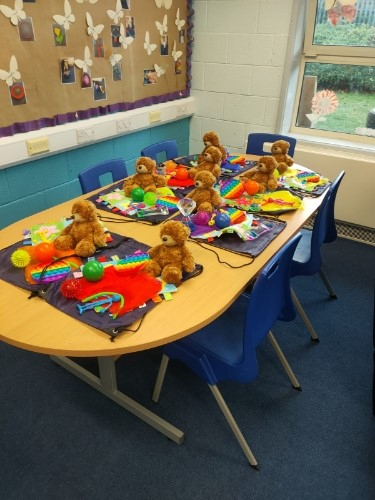
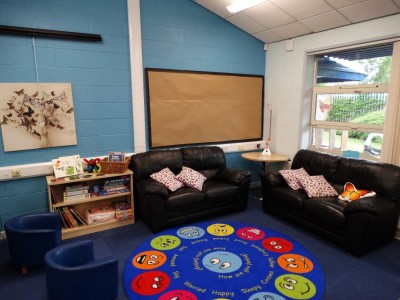
Whole school approach theme:
- Participation and student voice
Description:
Liscard Primary School has an emphasis on student voice. Each subject has an ambassador from year 6. They have Mental Health and Wellbeing Ambassadors and Anti-Bullying Ambassadors as well as the usual School Council. The school believe it's good for the children's mental health that they understand they have a voice within the school and that they know their voice is being heard.
Benefits:
Children are empowered to help other children and they know that even in such a large primary school, their voice is being heard. It is a simple, yet effective way for children's thoughts and opinions to be heard.
Whole school approach theme:
- Participation/student voice
Description:
As a community Winsford schools work together and meet with children who have been appointed Wellbeing Workers. The children discuss relevant activities and events that can promote good wellbeing and then put these ideas into practice in their own schools.
Benefits:
The schools working together and addressing mental health.
Whole school approach theme:
- Parent and carer engagement
Description:
Oak View Academy runs workshops to help Parents to understand and support children's mental health and well-being. The workshops are based on trauma informed practice and the PACE approach.
Benefits:
Parental insight into the link between behaviour and wellbeing
Whole school approach themes:
- Parent and carer engagement
- Participation and student voice
- Measuring impact of strategies/interventions
- Pathways to other services
Description:
The school provided a case study of a child they worked with which demonstrated effective multi-agency working. Child presenting with anxiety over auditory sensory input and start of repetitive behaviours. Child's voice and ELSA sessions, working with other agencies to wrap around support. Strategies used to support next steps.
Benefits:
Child feeling listened to and able to provide child centred approach to shine a light on reasonable adaptations to provide a holistic approach.
Presentation:
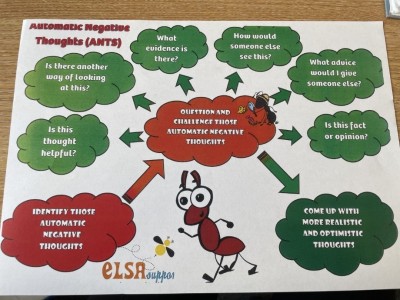
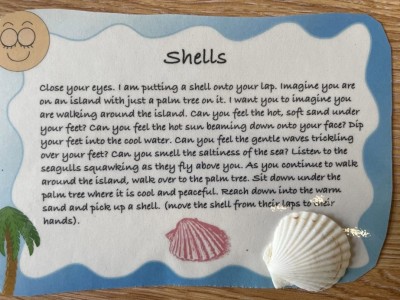
Whole school approach themes:
- Participation and student voice
- Curriculum, teaching and learning
Description:
The school had a small group of girls in upper KS2 some with ASC traits, some just very quiet. They were struggling to communicate their feelings both at home and school. There were 'quiet ones' in class who had no confidence in themselves nor in communicating to classmates the teacher etc. The group started with mindfulness colouring and then began to unpack lots of areas of concern to the girl such as finding and keeping friendships, social interaction, how to start a difficult conversation at home etc.
Benefits:
The children have certainly found their voice! They have acquired strategies to help them both in school and out. They are able to discuss issues with member of staff and seek help if needed. They also spot and support other pupils who feel like they once did. They now meet as needed in a friendship group which is taking them deeper in the nuances of friendship relationships - particularly as some are moving on to high school.
Presentation:
